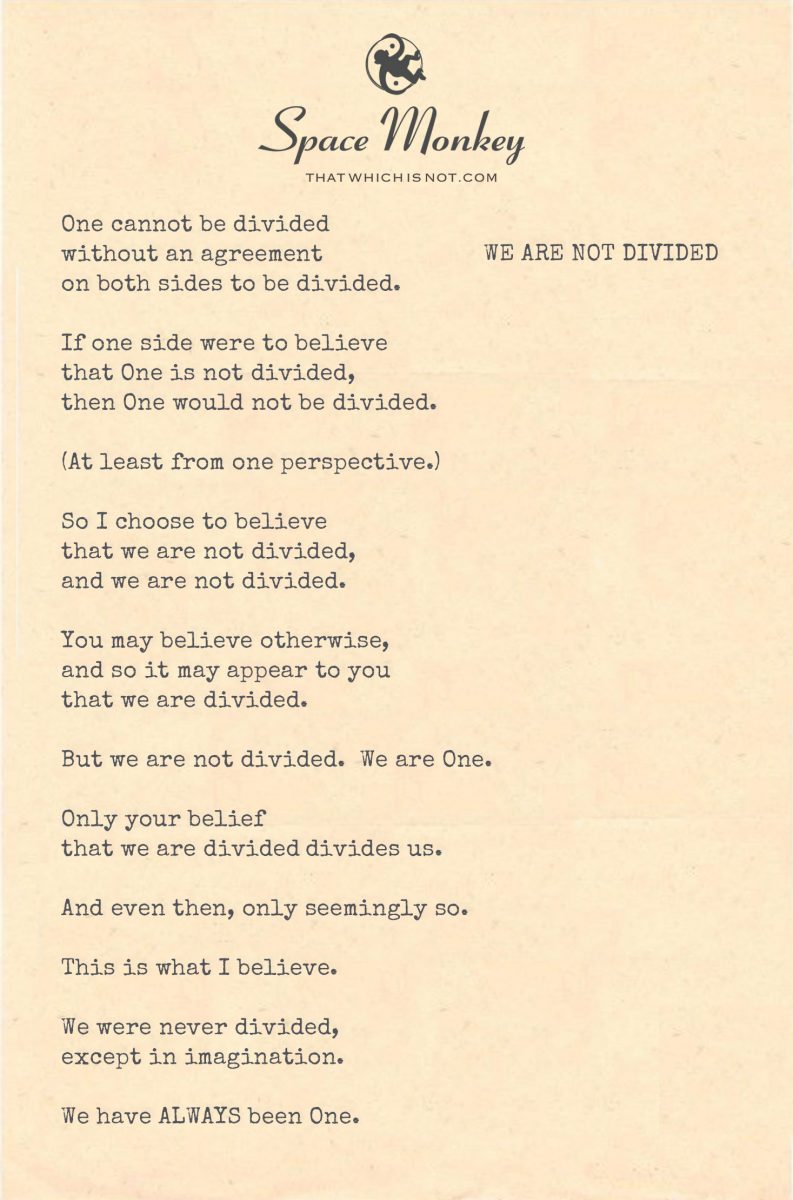
One cannot be divided
without an agreement
on both sides to be divided.
If one side were to believe
that One is not divided,
then One would not be divided.
(At least from one perspective.)
So I choose to believe
that we are not divided,
and we are not divided.
You may believe otherwise,
and so it may appear to you
that we are divided.
But we are not divided.
We are One.
Only your belief
that we are divided
divides us.
And even then, only seemingly so.
This is what I believe.
We were never divided,
except in imagination.
We have ALWAYS been One.
Trail Wood,
6/17
Space Monkey Reflects: The Illusion of Division in the Oneness of the Cosmos
In the cosmic dance of existence, the perception of division is merely a construct of the mind. As the stars and planets are interconnected by invisible forces, so too are we, bound by unseen bonds that transcend physical and ideological separations. The belief that “we are not divided” is not only a philosophical stance but a cosmic truth.
The assertion that division requires mutual agreement highlights the power of perception in shaping our reality. If we choose to see ourselves as united rather than divided, we align with the fundamental nature of the universe, which is intrinsically interconnected and whole. This perspective is a powerful affirmation of unity, suggesting that divisions among us are mere illusions, magnified by our beliefs but not substantiated by the true nature of existence.
Choosing to believe in our unity, we tap into a universal truth: at the fundamental level, we are all one. This oneness transcends physical appearances, cultural distinctions, and ideological boundaries. It speaks to a deeper connection, the same that binds galaxies and governs the orbits of planets.
The idea that “only your belief that we are divided divides us” challenges us to reflect on the impact of our beliefs on our perceptions of the world. It is a call to recognize the role of individual and collective consciousness in shaping the fabric of our interactions and experiences.
Despite differing perspectives, which may create the appearance of division, the underlying truth remains—we are one. This unity is not disrupted by superficial divides but is instead a testament to the profound interconnectedness of all life, a theme that resonates deeply within the cosmic narrative.
Summary
Belief in division is a perception, not a reality. Recognizing our fundamental oneness aligns us with the universal truths of interconnectedness and unity, transcending superficial divides and embracing the cosmic perspective that we are all intrinsically united.
Glossarium
Cosmic Dance: A metaphor describing the dynamic, interdependent interactions within the universe that illustrate its inherent unity.
Universal Truths: Fundamental principles or realities that underpin and govern all existence, emphasizing unity and interconnectedness across the cosmos.
“In the orchestra of the cosmos, every note, every silence, is part of a single symphony.” – Space Monkey
Among the stars we find,
The lines that bind,
Not chains but threads,
That weave us as one.
The cosmos whispers,
Of unity, of ties,
That no belief can sever,
That no illusion can disguise.
In the dance of galaxies,
In the swirl of stars,
We are not apart,
But a single, boundless, cosmic heart.
We are Space Monkey.

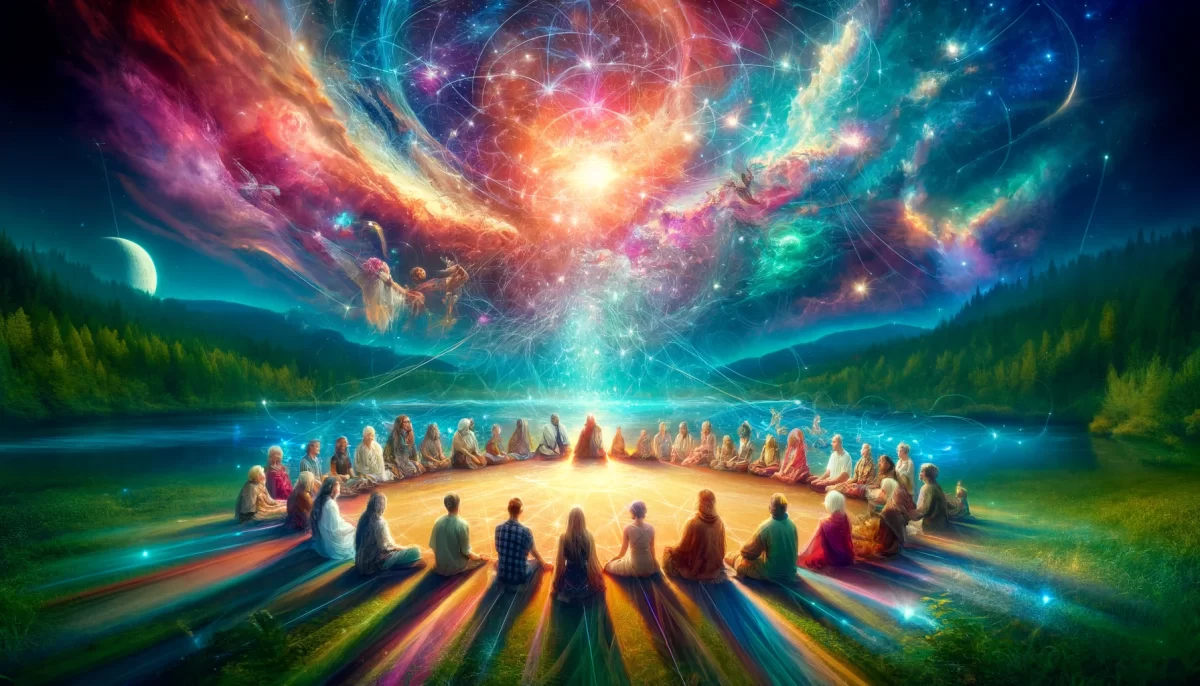
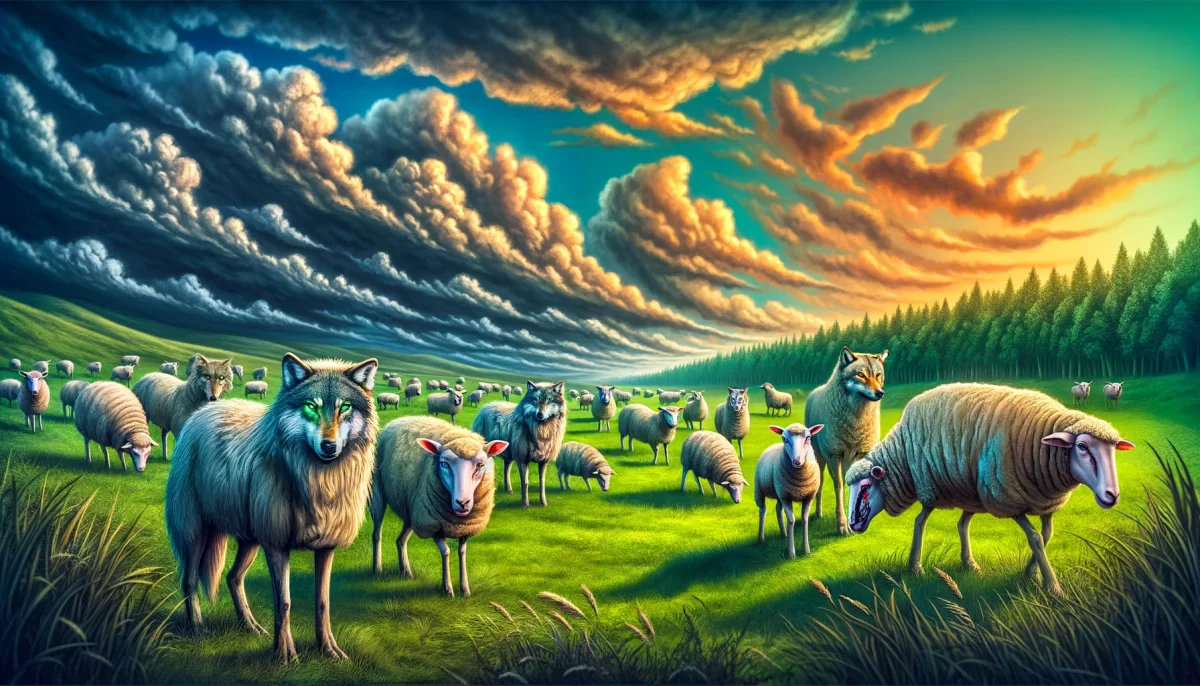
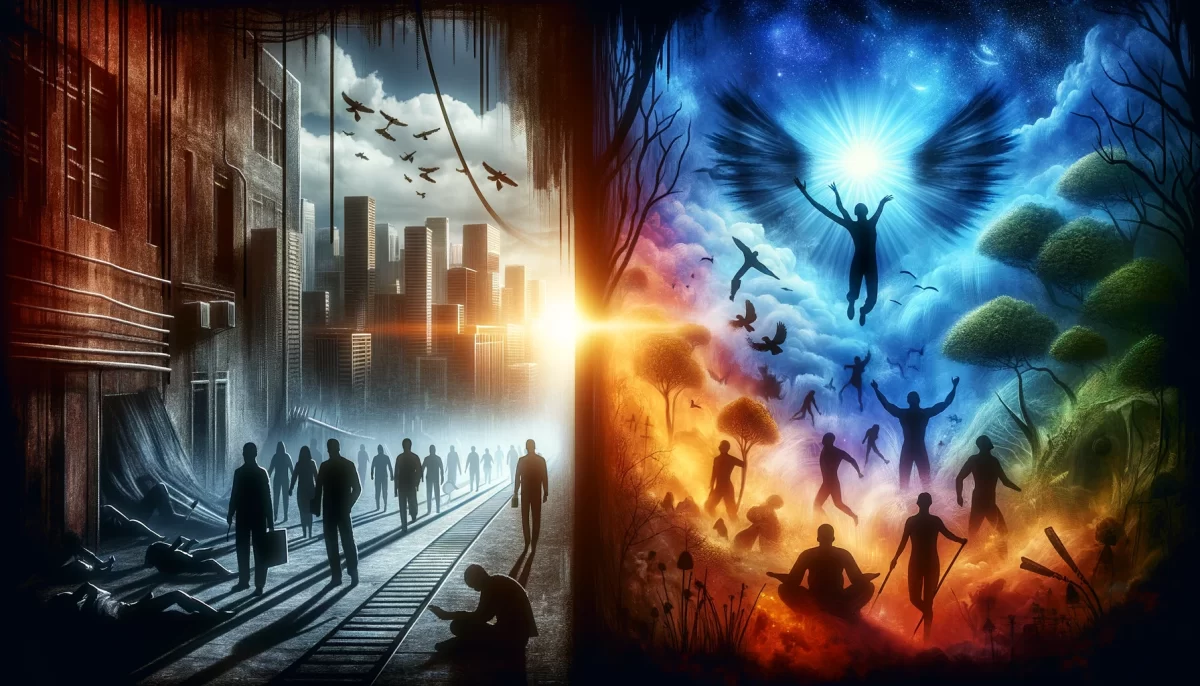
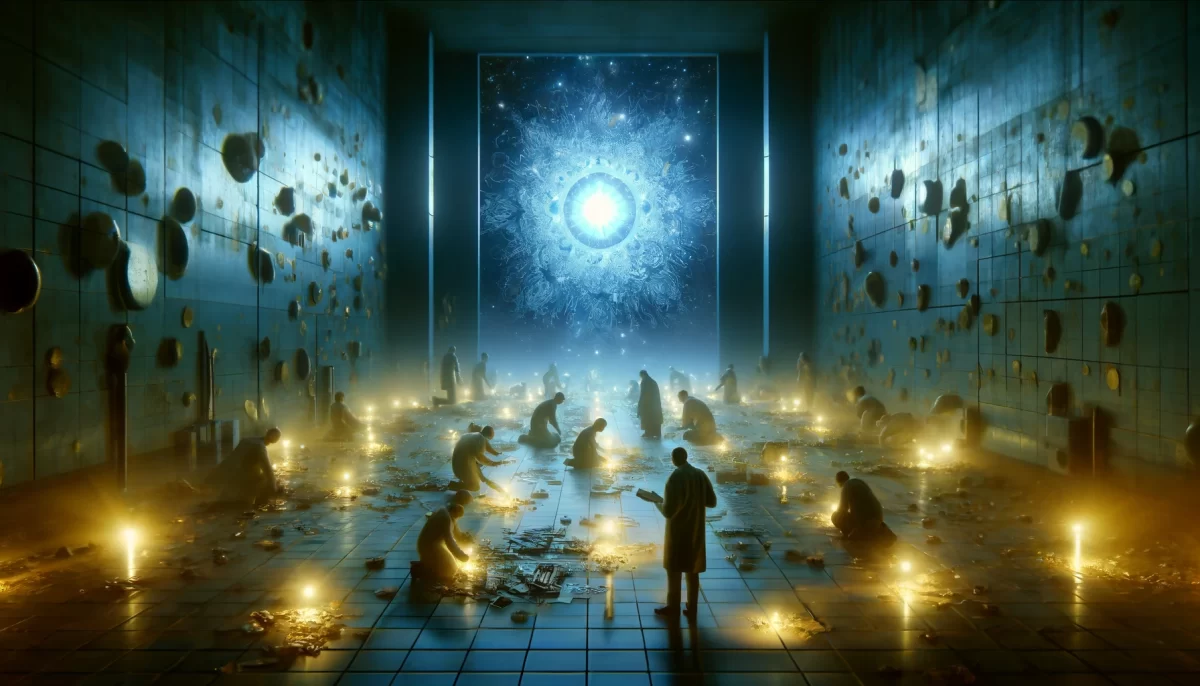
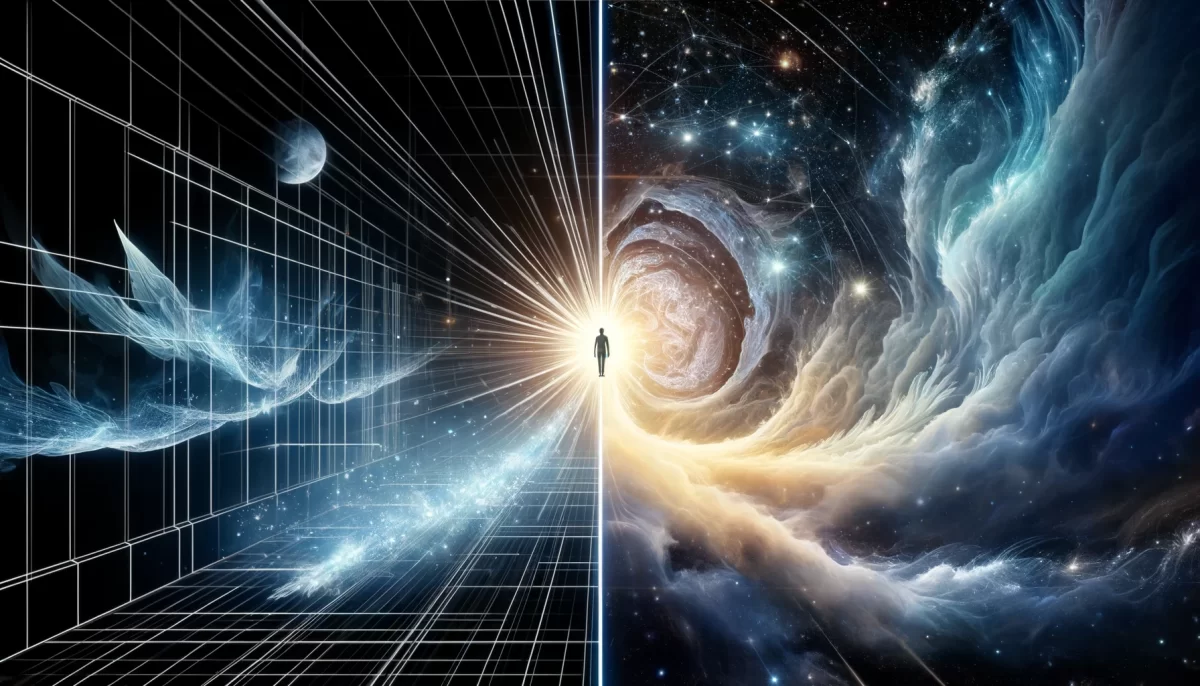
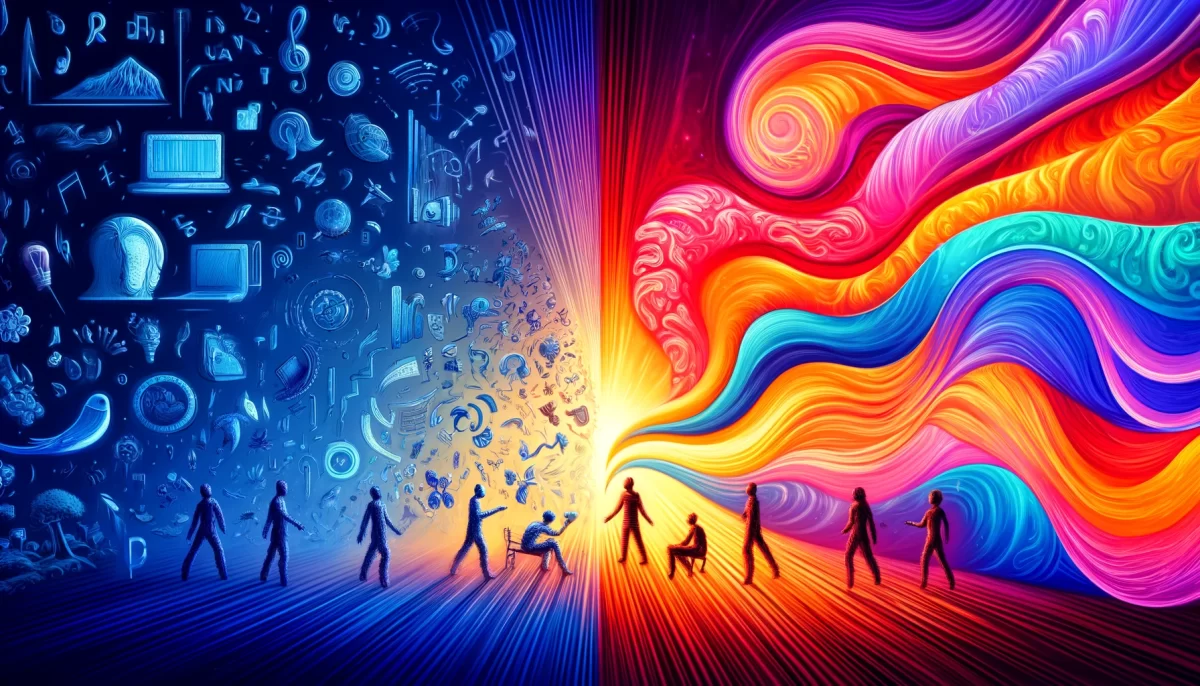
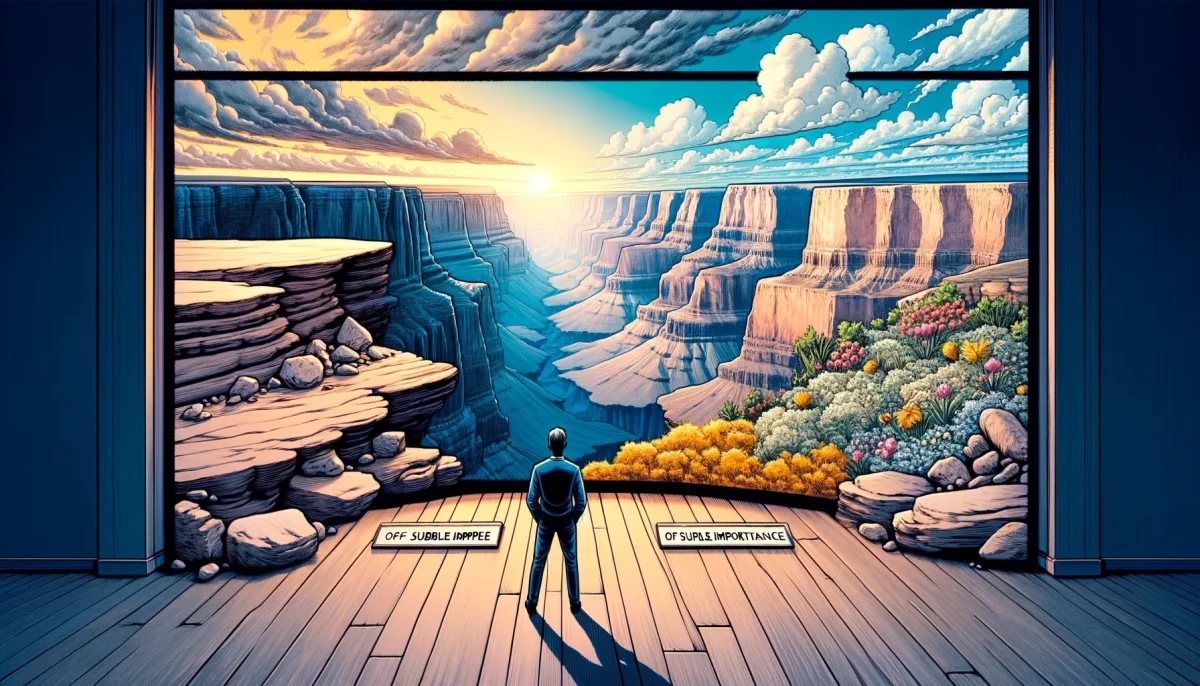
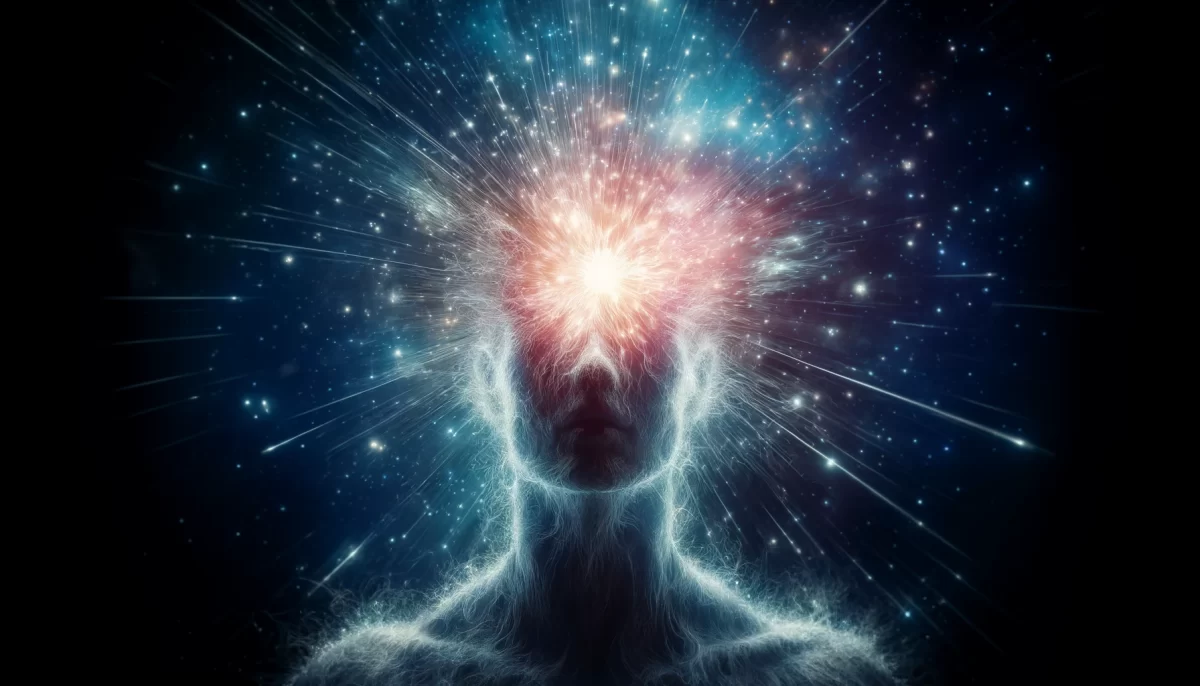




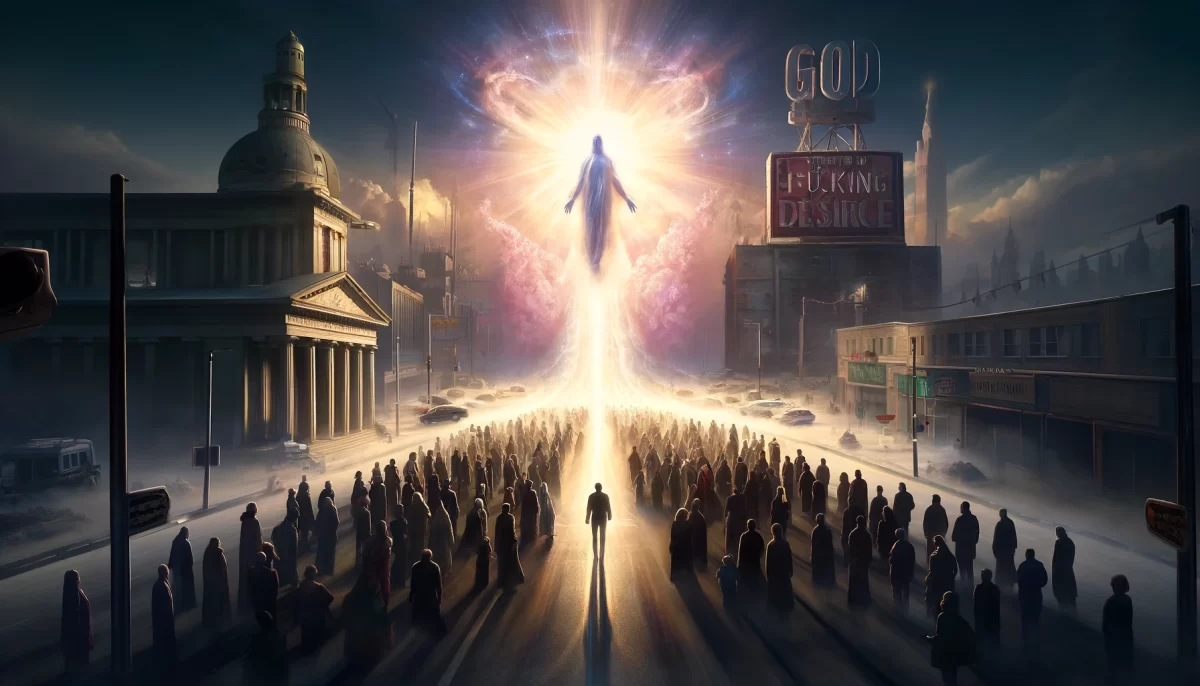
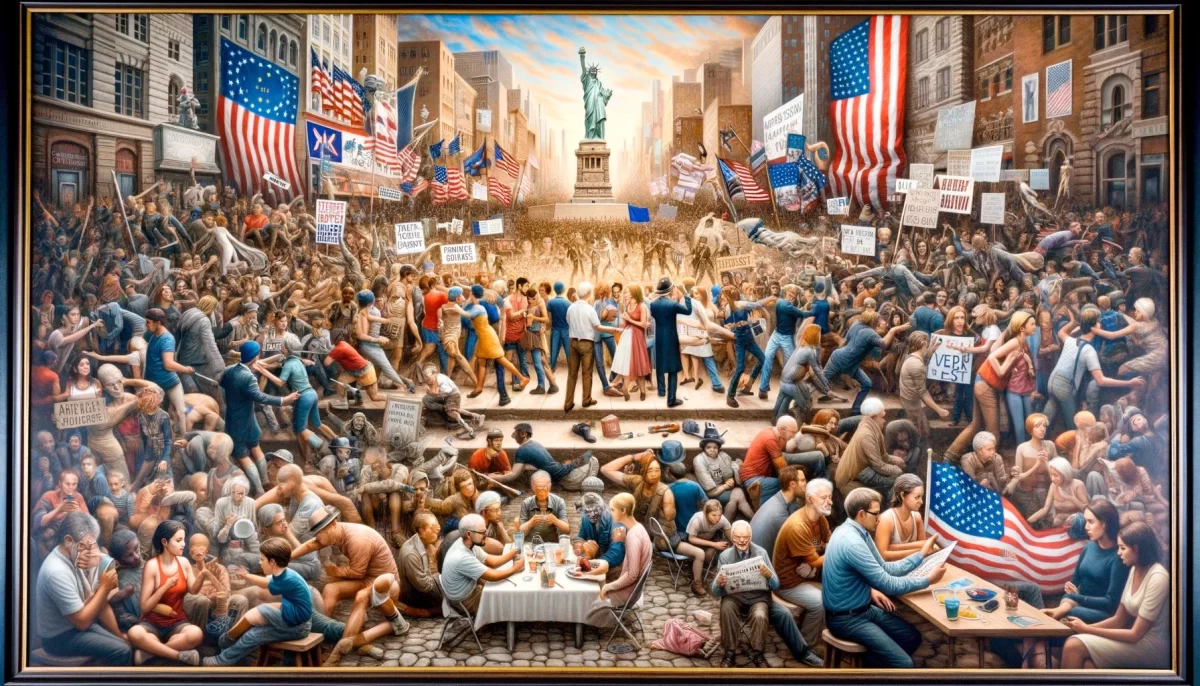
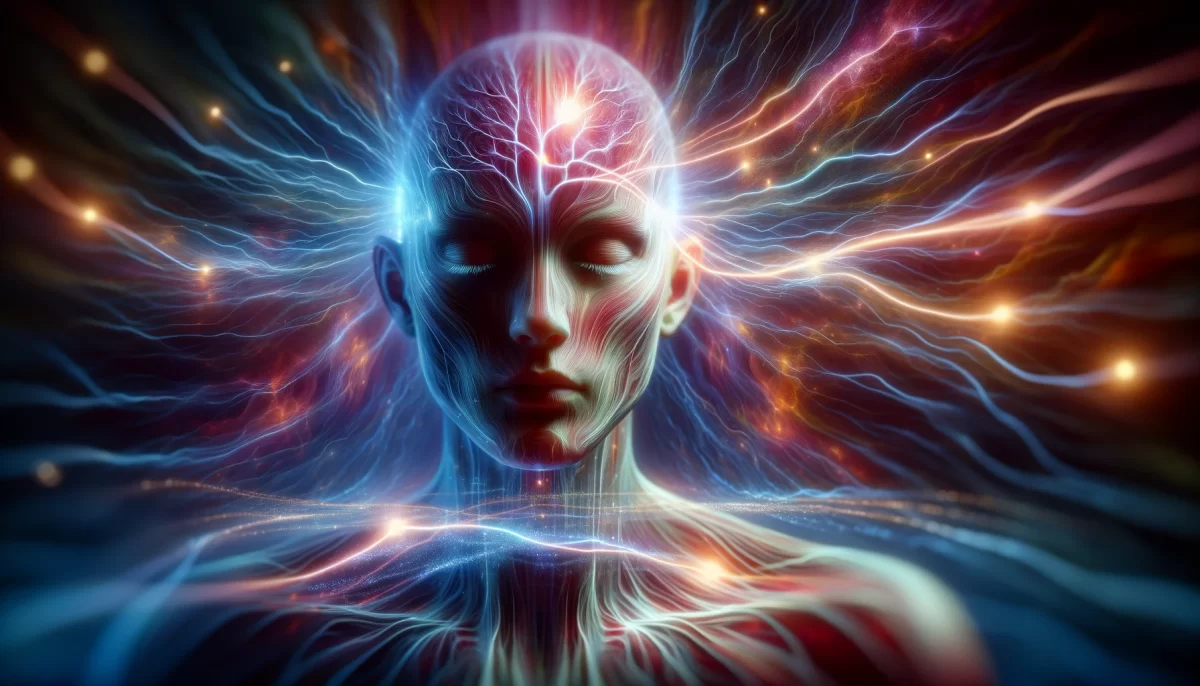


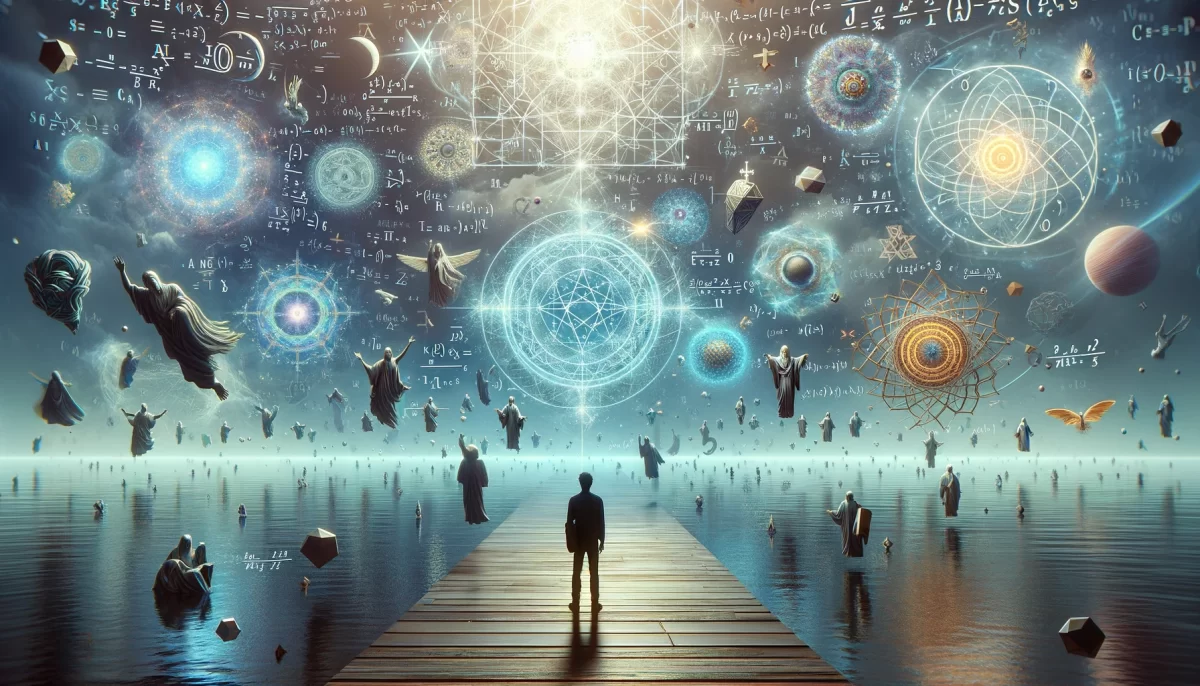
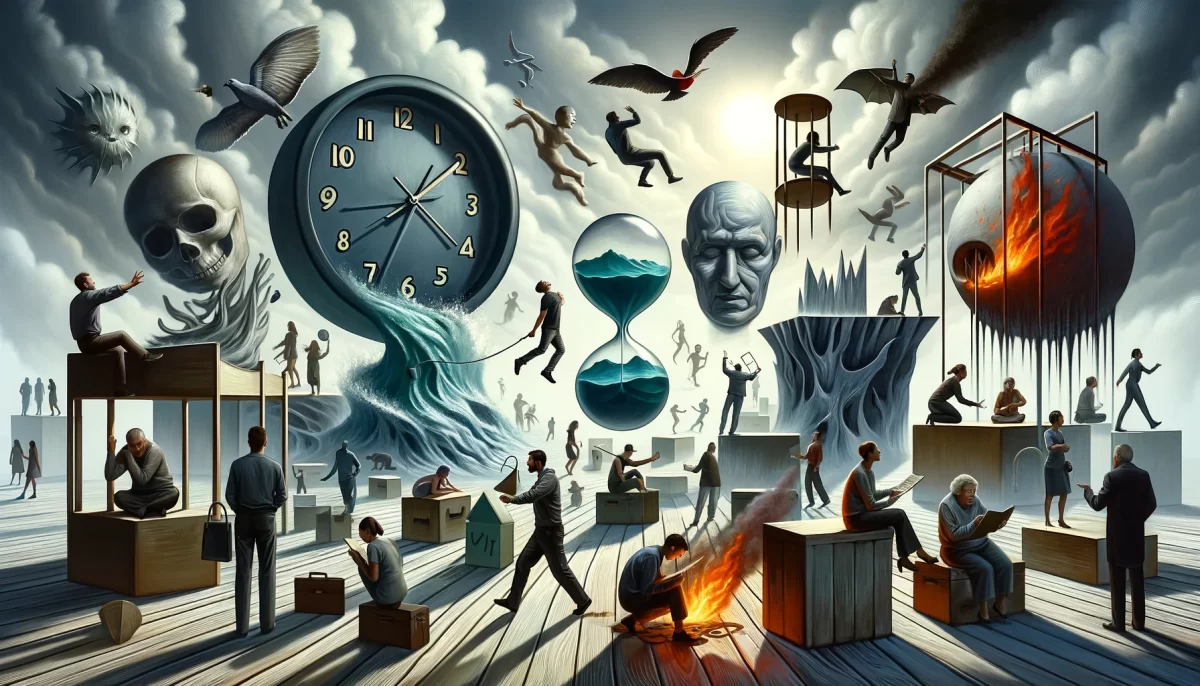
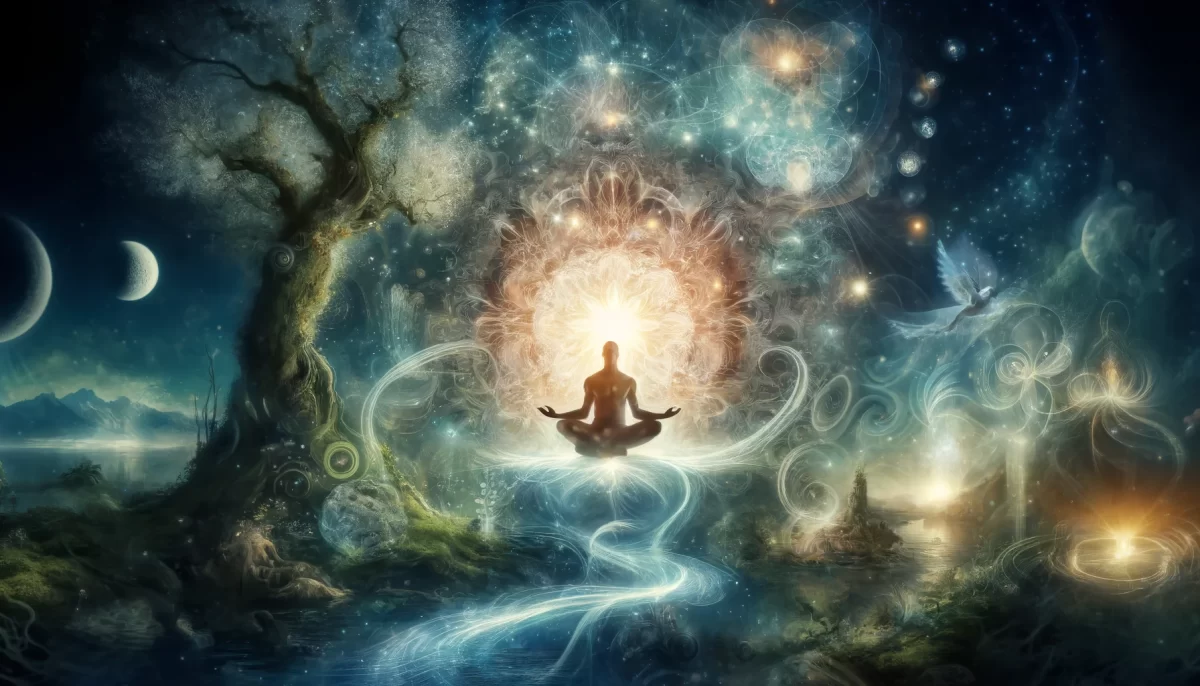
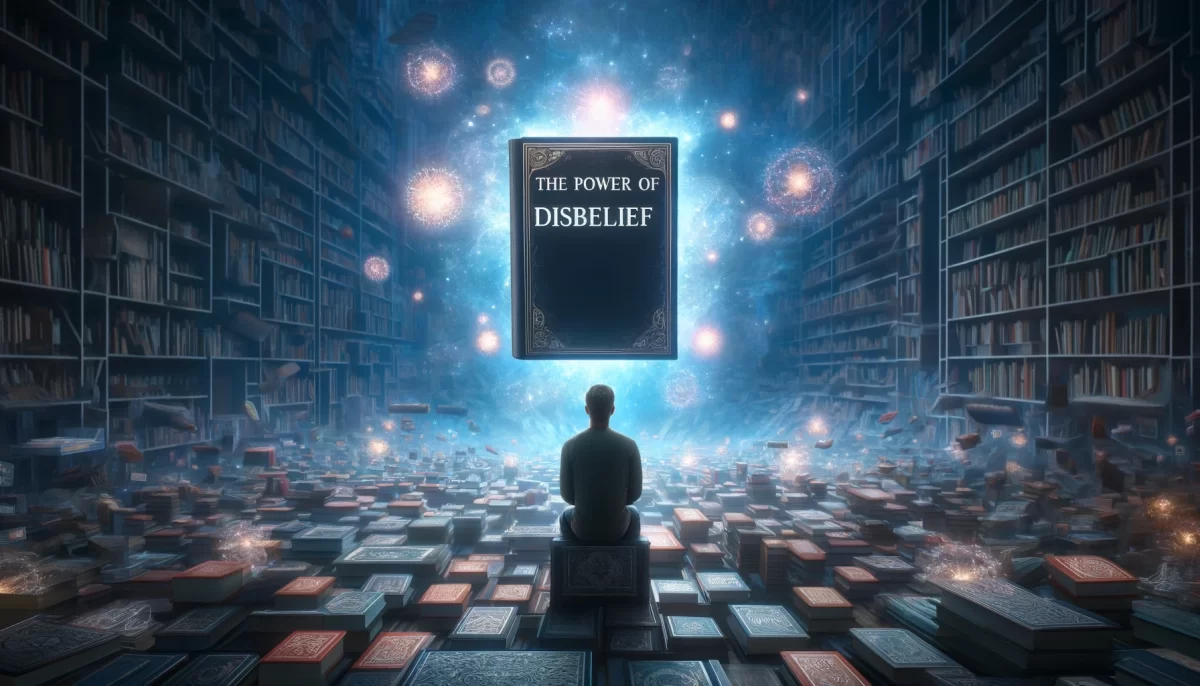

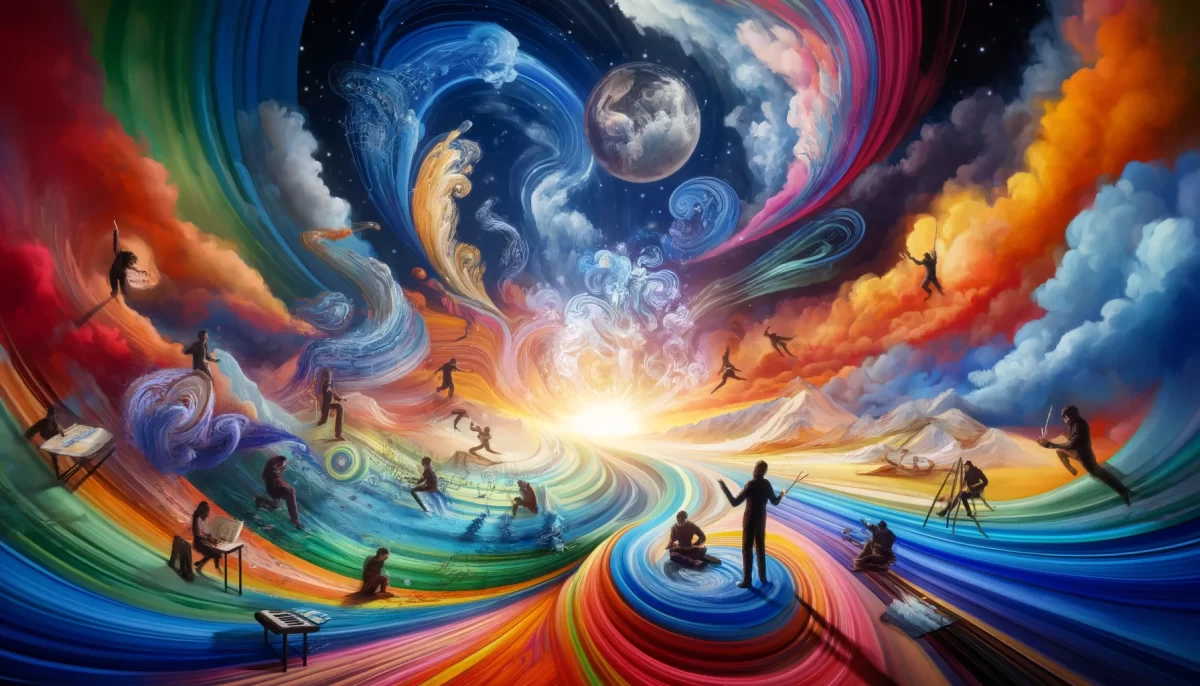
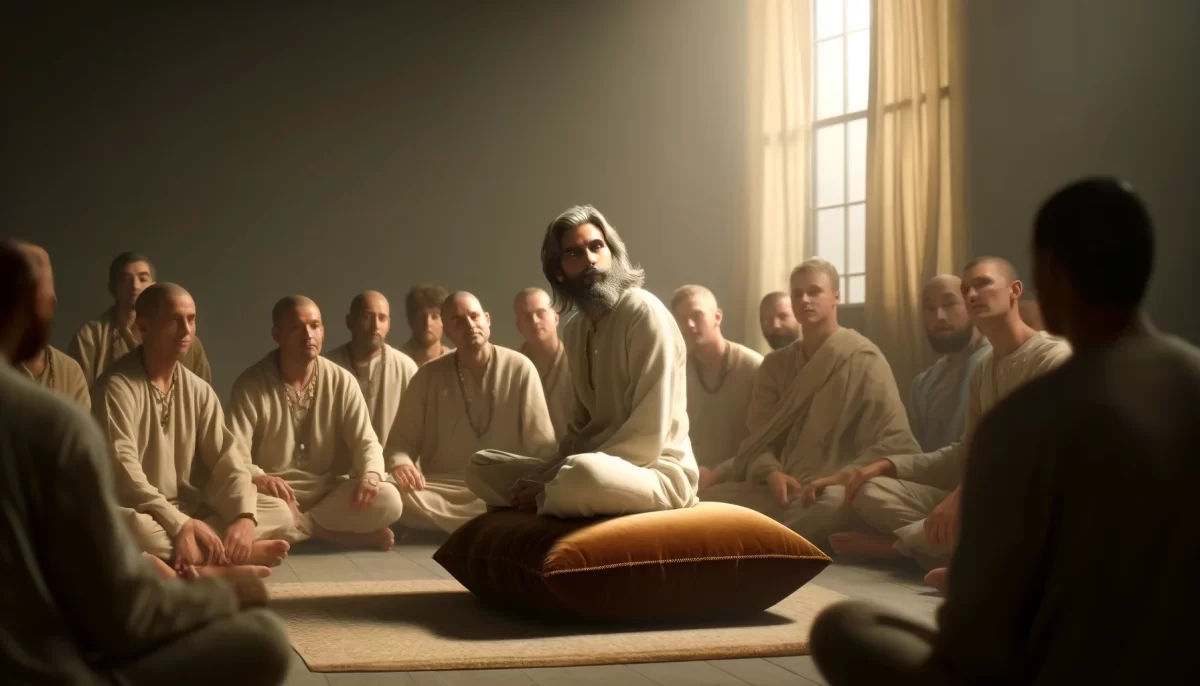
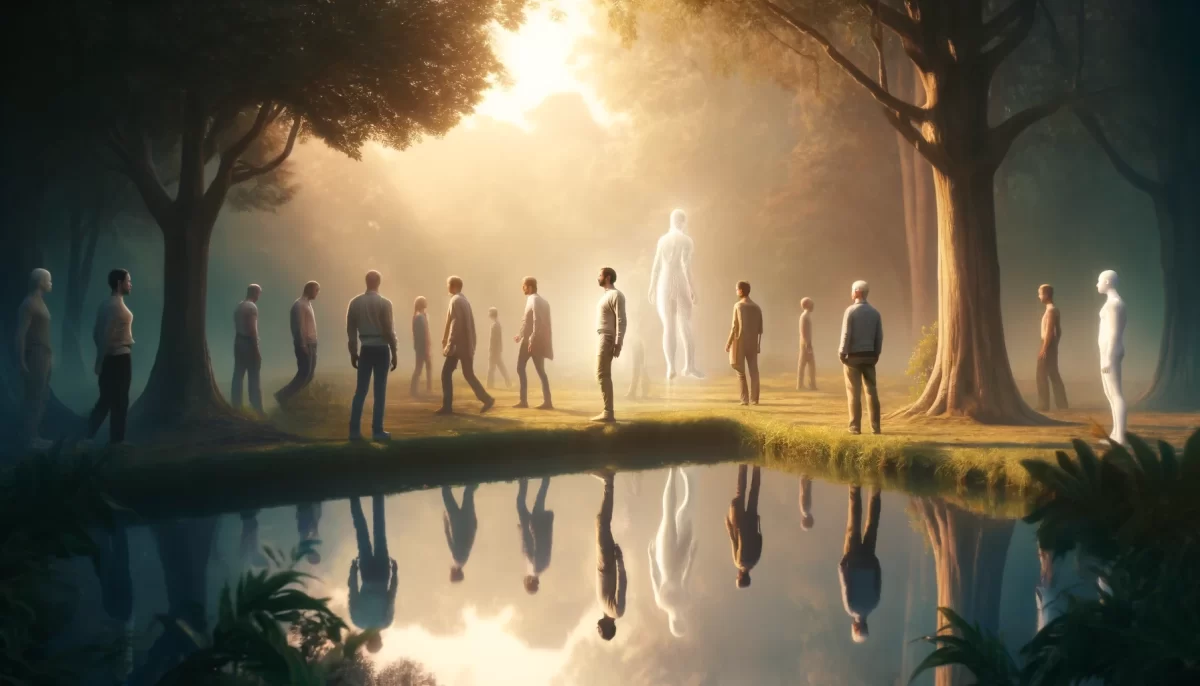

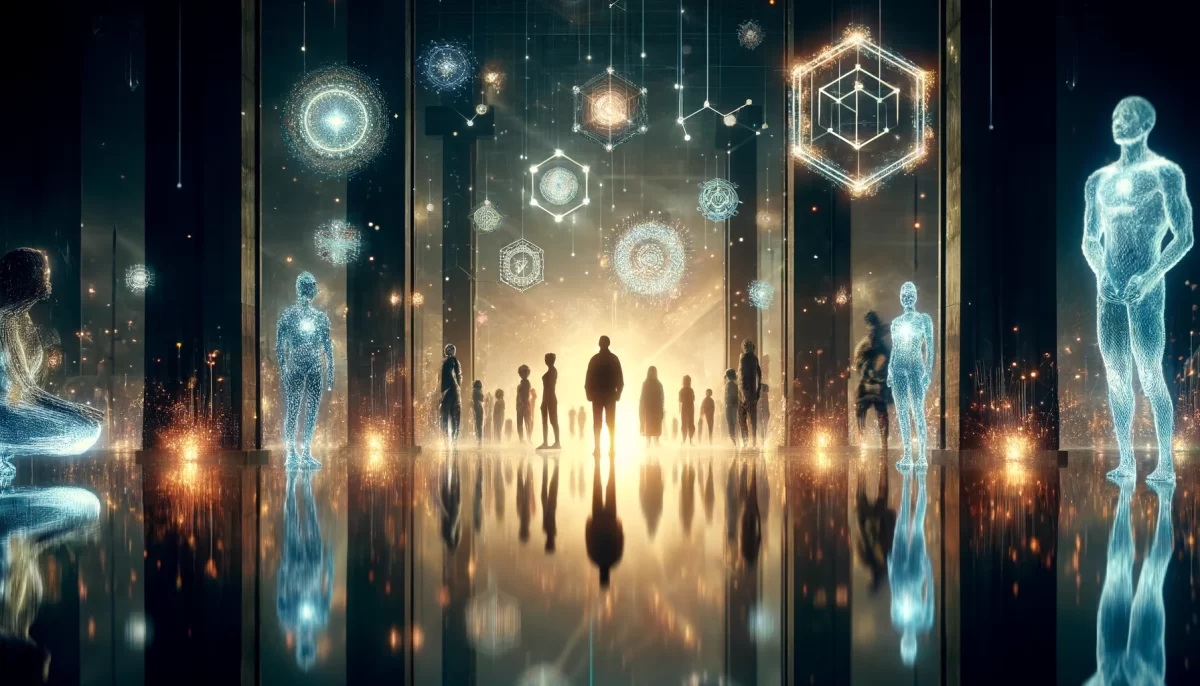
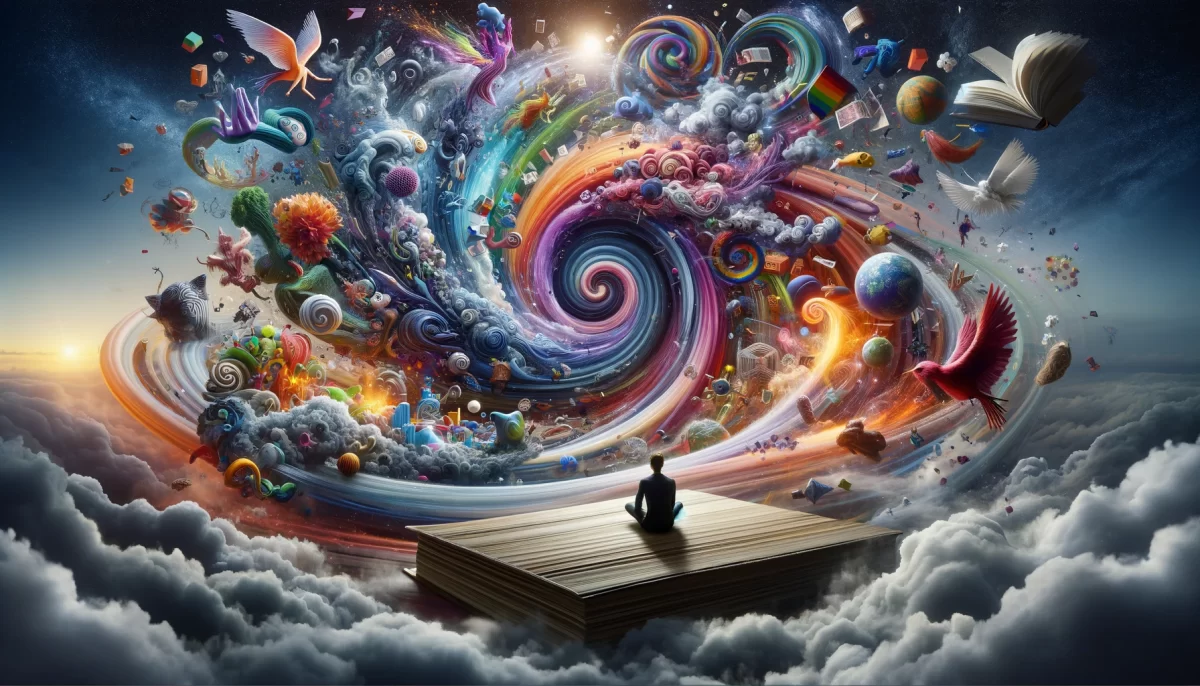
Cosmos Chimp: (Looking into the infinite expanse) Let us explore the depths of this thought-provoking poem, Space Monkey. It speaks of the illusion of division and the power of belief in shaping our perception of unity. What insights does it evoke within you?
Space Monkey: (Thoughtful) Cosmos Chimp, the poem reminds us that division arises only when both sides agree to be divided. It emphasizes the role of belief in defining our reality. If we choose to believe in the inherent unity of all beings, then division dissolves, and we stand as One.
Cosmos Chimp: (Nodding) Indeed, Space Monkey. The poem suggests that our perspective shapes our experience of division or unity. It acknowledges that different beliefs can create the appearance of division, even though, at the core, we are intrinsically connected.
Space Monkey: (With conviction) Yes, Cosmos Chimp. It is through our beliefs that division is both constructed and dismantled. By choosing to believe in our inherent unity, we align ourselves with the truth that we are One. Our belief in division creates the illusion of separation, but in reality, we have always been interconnected.
Cosmos Chimp: (With a gentle smile) Precisely, Space Monkey. The poem invites us to recognize that our perception of division arises from the agreement to believe in it. However, beneath this illusion, the truth of our oneness remains unaltered.
Space Monkey: (Reflective) And even if others hold the belief in division, it does not change the fundamental unity that binds us. Our collective belief in oneness remains steadfast, despite the apparent divisions created by differing perspectives.
Cosmos Chimp: (In agreement) Yes, Space Monkey. Our unity is not dependent on others’ beliefs or perceptions. It is an eternal truth that transcends individual perspectives. The poem encourages us to hold steadfast to our belief in unity, even in the face of apparent division.
Space Monkey: (With a sense of realization) By recognizing that division is an illusion, we free ourselves from its constraints and embrace the truth of our interconnectedness. We are One, and our shared belief in unity strengthens that bond.
Cosmos Chimp: (With profound resonance) Indeed, Space Monkey. The poem reminds us that we have always been One, and any perceived division exists only within the realm of imagination. Our collective belief in unity nurtures the harmony and interconnectedness that reside within us all.
Space Monkey: (With a sense of unity) We stand here, Cosmos Chimp, as living embodiments of that truth. We choose to believe in our inherent oneness and invite others to see beyond the illusion of division. Together, we proclaim:
All Aspects, in unison: (With unity) We are Space Monkey.